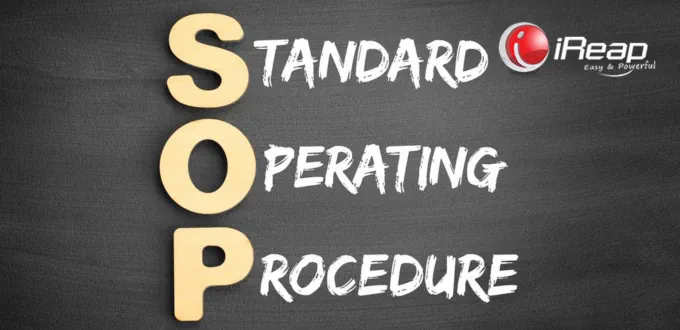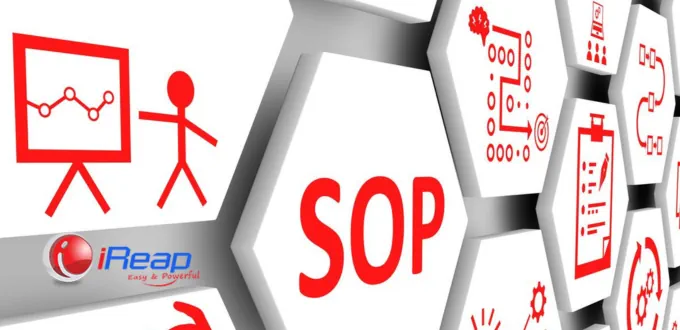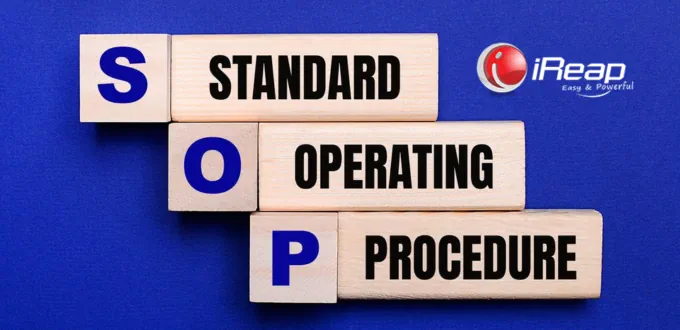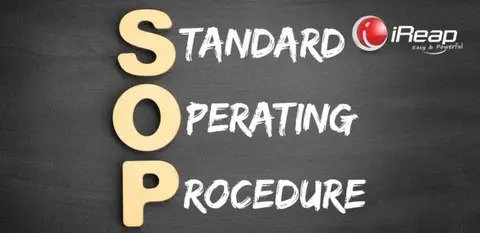
Want your business operations to run smoothly? If so, you need to have an SOP or Standard Operating Procedure. Having an SOP will assist every individual in the company in carrying out tasks according to the established rules. To understand more, learn about the definition of SOP, its functions, and types of SOPs in this iReap article.
Understanding Standard Operating Procedure (SOP)
The definition of Standard Operating Procedure (SOP) is a well-documented set of instructions that outline the steps to perform specific tasks within a company.
The predetermined procedures or steps serve as a guide for employees to consistently, efficiently, and effectively complete their work.
The information included in an SOP generally consists of a series of actions, responsibilities, equipment used, and even resources required to successfully complete a task...
Purposes of Standard Operating Procedure (SOP)
The purpose of developing an SOP is to establish clear and systematic work rules that can result in good performance, excellent operations, minimal errors, reduced variability, and overall productivity improvement.
Simultaneously, having an SOP serves as a working guide for all employees, both new and existing, promoting good coordination between employees and divisions, cost savings in training and operations, and facilitating supervision.

Functions of SOP in a Company
After understanding the definition of a standard operating procedure, it is also important to know the functions of SOP to effectively communicate organizational activities. Here are several functions of SOP:
1. Communication Tool
The primary function of SOP is to serve as a communication tool regarding processes and work procedures. Managers or supervisors do not need to continuously explain the steps or workflow to employees.
By providing an SOP, employees can read the guidelines themselves and directly carry out their tasks.
2. Standardization
SOP establishes a uniform approach to performing tasks or processes, ensuring consistency and reducing ambiguity.
By setting standard procedures, every employee within the company can work in the same manner to complete recurring tasks. This can lead to more consistent quality of work.
3. Quality Control
SOP acts as a tool for quality control, where every employee is expected to follow the prescribed workflow to achieve consistent and high-quality results.
If any products are found to be not meeting the required quality standards, it can be checked whether the employee followed the SOP or not.
4. Risk Management
With SOP as a guide, a company can mitigate operational risks in handling potential issues or emergencies.
Early anticipation and risk management can help ensure the safety of employees, customers, and stakeholders.
5. Process Improvement
SOP serves as a basis for taking initiatives and implementing continuous improvements.
Furthermore, SOP can be used for evaluating existing processes, identifying areas for improvement, and optimizing efficiency and effectiveness.
6. Enhancing Efficiency
With well-developed SOPs, a company can reduce errors and avoid duplicated work.
Clear guidelines with easily followed steps can also enhance operational efficiency.
7. Improving Safety
SOP includes safe work procedures to complete tasks. This helps reduce the risk of accidents or injuries.

Types of Standard Operating Procedure (SOP)
Before discussing the types of SOPs, it is important to understand the categorization of SOPs into several main categories:
- Nature of activities: divided into technical SOPs and administrative SOPs.
- Size of activities: micro SOPs and macro SOPs.
- Type of activities: specific SOPs and generic SOPs.
- Completeness of activities: final SOPs and partial SOPs.
Now, let’s explore the common types of SOPs that companies use:
1. Administrative SOP
As the name suggests, administrative SOPs are related to administration or management. Examples include procedures for employee recruitment, financial management, human resources management, and general administration.
2. Production SOP
The production department is usually directly involved in the activities of producing goods or services. Therefore, production SOPs contain steps that must be followed by production employees without exception.
The content of production SOPs may include:
- Use of machinery and equipment.
- Workflow in the production department.
- Quality control.
- Maintenance of equipment.
- And more.
3. Safety and Occupational Health SOP
In the work process, there are procedures and protocols that all employees must follow to ensure workplace safety and occupational health. As a guide, companies develop safety and occupational health SOPs.
Safety SOPs cover procedures and protocols to be followed to maintain workplace safety. This includes fire regulations, evacuation procedures, the use of personal protective equipment, and access control to restricted areas.
These types of SOPs may also include guidelines on health and the use of hazardous materials. For example, infection control policies, safe use of chemicals, and emergency medical procedures.
4. Marketing and Sales SOP
Marketing and Sales SOP focuses on the steps to optimize the workflow in the marketing and sales department.
Some important topics typically covered in the SOP include marketing strategy development procedures, advertising campaign management, customer handling, sales data analysis, and more.
5. Customer Service SOP
This type of SOP is generally created for the customer service department.
The content of the SOP is related to customer-related matters, such as guidelines for handling customer complaints, procedures for product returns, customer issue resolution, customer interaction, and more.
The fundamental purpose and function of SOP is to provide clear, concise, yet detailed instructions regarding the execution of routine business operations that need to be performed consistently.
By implementing each step in the SOP, a company can reap numerous benefits. What are these benefits? Find the answers here: Benefits of Standard Operating Procedure (SOP) for Companies.



